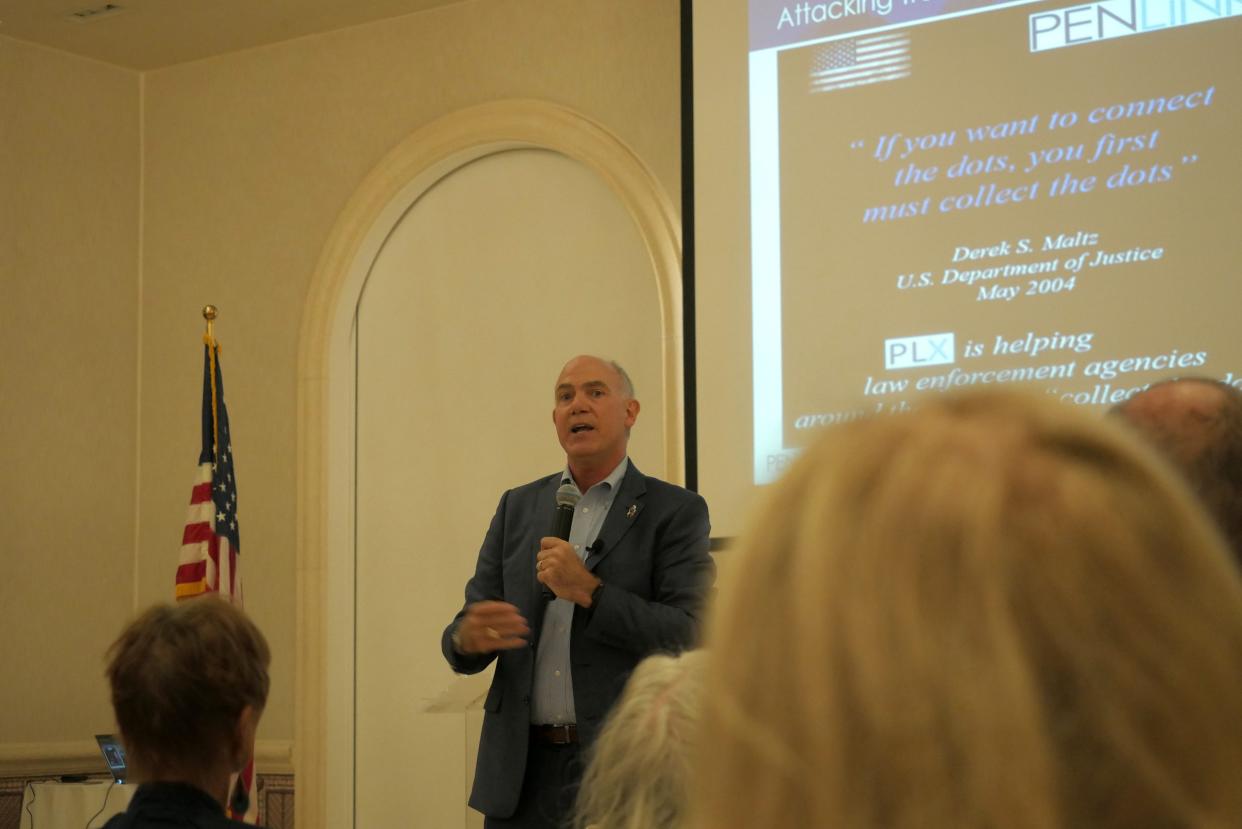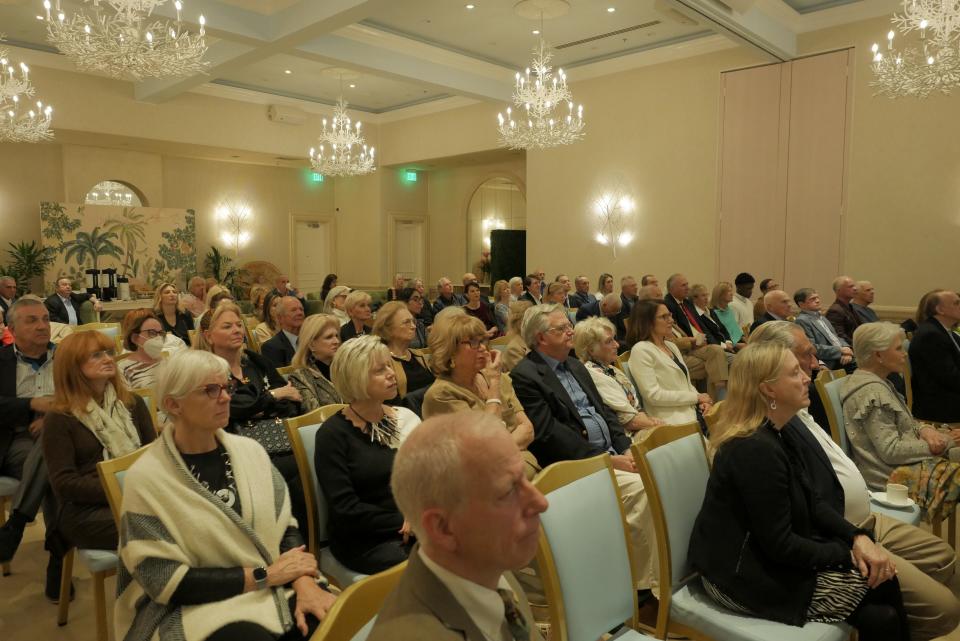Former DEA agent accuses China of fueling fentanyl crisis in effort to 'destabilize' U.S.

A former special agent with the U.S. Drug Enforcement Administration is accusing China of fueling the fentanyl crisis as part of a concerted effort to "destabilize and destroy" America.
“The bigger picture (to the fentanyl crisis) is China's unrestricted warfare using these poisonous substances to kill our kids,” Derek S. Maltz told the roughly 100 people who gathered Jan. 22 at the Colony Hotel for the latest installment of the World Affairs Council of Palm Beach's Distinguished Speaker Series.
Maltz spent nearly 10 years as special agent in charge of the U.S. Department of Justice’s Special Operations Division and coordinated the multi-agency effort that led to the capture of Joaquín "El Chapo" Guzman. He described the fentanyl crisis as the result of a nation besieged by foreign actors, namely China and the Mexican drug cartels.
The lecture culminated in policy prescriptions that included the use of military action in Mexico, akin to the U.S.'s late 20th-century involvement in Colombia's efforts against narco-traffickers. He also mentioned more radical proposals, including a call to close the U.S.-Mexican border, citing a 2020 Atlanta bust in which 900 pounds of methamphetamine were seized from a home.
"We have to use all the authorities and capabilities of the United States government and we need to work with Mexico first, like we did with Colombia many years ago," said Maltz, who is now the executive director of government relations for PenLink Ltd., which makes software for law enforcement agencies.
"Using sophisticated technology, we do precision strikes on these poisonous weapons-of-mass-destruction labs," referring to fentanyl labs operated by the Mexican cartels.

Derek Maltz outlines link between China, Mexican cartel
Maltz has made similar arguments in venues as diverse as The Heritage Foundation and TV's "Dr. Phil" show. He has emerged on online platforms as a critic of U.S. border control policy and has become a leader at Border911, a nonprofit that advocates for stricter border policies.
He told attendees that the relationship between Mexican narco-traffickers and Chinese chemical manufacturers began with the cartels' methamphetamine trafficking. He referenced a 2007 Mexico City police raid of Chinese-Mexican businessman Zhenli Ye Gon, which seized $207 million allegedly acquired through selling the precursor chemical to the Sinaloa cartel.
“Why were (Chinese chemical manufacturers) making this much money? Because when the chemicals come out of China, they go to a lab in Mexico to make methamphetamine,” Maltz said.
Maltz said Chinese chemical manufacturers and the Mexican cartels transitioned their trafficking efforts to fentanyl amid the U.S. opioid epidemic. He said fentanyl's greatest danger may lie in its use as filler in other illicit drugs.
"It's not real oxycontin. It's not real Xanax. They are tainted by the cartels with fentanyl," he said.
Maltz told the World Affairs Council that this was part of Chinese's "strategic plan" against the U.S., alongside the rising number of undocumented Chinese migrants detained at the nation's border. According to Maltz, the number of those illegally apprehended rose to 24,125 in 2023 from 342 in 2021. He said law enforcement has arrested some Chinese nationals for their roles in marijuana grow-house operations.
While some experts such as Maltz accuse the Chinese state of involvement, other experts disagree, stating that there are multiple powerful actors within China involved in the drug trade including the mafia-like Chinese Triad and the massive web of chemical manufacturers operating without legal approval in China.
Combatting the illicit drug trade also was one of the few issues Chinese leader Xi Jinping and U.S. President Joe Biden agreed on enacting during their summit in November.
Speaker faults federal government with ignoring the crisis
Maltz also discussed a wide range of policy prescriptions to combat the fentanyl crisis, including the creation of a national drug education program for kids to fight "rainbow fentanyl," or fentanyl pressed into colors and shapes similar to hard candy.
"Why is it that the Department of Education is not providing mandatory education on drug poisoning?" he asked.
In general, state and local governments create curricula and programming, while the federal Department of Education's primary role is that of a funder and resource hub for local and state education departments, including resources to create preventive drug abuse programs.
Maltz also called for celebrities to take a more active role in spreading awareness of the problems at the border and about the fentanyl crisis. A figure such as singer-songwriter Taylor Swift, he said, could play a huge role in shifting the conversation.
"She's got 300 million followers," he said, noting that her boyfriend, football player Travis Kelce, is gaining similar appeal. "Kids are going to listen to her."
Diego Diaz Lasa is a journalist at the Palm Beach Daily News, part of the USA TODAY Florida Network. You can reach him at dlasa@pbdailynews.com. Help support our journalism. Subscribe today.
This article originally appeared on Palm Beach Daily News: China fuels U.S. fentanyl crisis, speaker tells Palm Beach group

